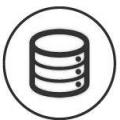This two-day INTENSIVE workshop will cover (in a teaching computer lab environment, using the the General Social Survey as a common dataset): Getting data into StataStata specific tools and resources (do files, logs, help files, etc)Coding and cleaning data (making new variables from old variables; labeling variables and values, etc) Collapsing dataDescriptive statistics (tables and graphs)Cros
Sign up for our weekly newsletter!
This is an archive of our past training offerings. We are looking to include workshops on topics not yet covered here. Is there something not currently on the list? Send us a proposal.
Are you interested in helping to build a database on federal court cases? Do you want to learn some programming and data management skills while you're at it? This semester, D-Lab will host a working group where interested students can help build a large and comprehensive database on litigation in federal district courts.
The workshop will cover (in a teaching computer lab environment, using the the General Social Survey as a common dataset):
The workshop will provide an intensive introduction to R, spanning a total of 12 hours of instruction over 4 days. Topics to be covered include:
This is five days of training to get you on the on-ramp to scientific computing. Please sign up only if you'll commit to attending all the sessions, since we have really limited space for this offering.
An introduction to fundamental aspects of computing with data, including the following topics:
Git is a powerful tool for keeping track of changes you make to the files in a project. You can use it to synchronize your work across computers, collaborate with others, and even deploy applications to the cloud. In this workshop, we'll learn the basics of understanding and using Git, including working with the popular "social coding" website, GitHub.
This workshop will familiarize attendees with the Undergraduate Research Assistanceship Program (URAP) and the benefits and challenges of working with undegraduate research assistants. Expect to learn about:
URAP logistics and bureaucracy
Recruiting undergraduates
Which projects/tasks are (in)/appropriate for undergraduate research assistants
The D-Lab invites graduate students from the Haas School of Business to an information session. The D-Lab provides students with the resources to learn how to collect, manage, process, analyze and store both quantitative and qualitative data.
The D-Lab invites students from the Berkeley School of Public Health to a lunchtime info session. The D-Lab provides students with the resources to learn how to collect, manage, process, analyze and store both quantitative and qualitative data.
Web scraping is a powerful and increasingly important tool for social science researchers. It allows users to automatically download the content of websites as plain text files for use in data and text analysis. This workshop series is a thorough introduction to web scraping using the python package scrapy.
UPDATE: Please see the course website here. Materials for the site are in a GitHub repository.
Our goal is to help scientists and engineers become more productive by teaching them basic computing skills like:
The D-Lab invites students from Berkeley Law's program in Jurisprudence and Social Policy to a lunchtime info session. The D-Lab provides students with the resources to learn how to collect, manage, process, analyze and store both quantitative and qualitative data.
The safe storage, careful documentation, and open sharing of data are important research objectives. They are foundational data management practices for maximizing the impact of your work and meeting the data requirements of national funding agencies.
Info session co-sponsored by D-Lab and the School of Information:
This 2-hour workshop is geared towards users with previous knowledge of Stata looking to carry out data analysis in R. It will offer participants a side-by-side comparison of how the same analytical procedures can be implemented in both environments. Topics to be covered include data manipulation, summary statistics, classical hypothesis tests, regression, regression diagnostics, and plotting
This 3-hour workshop is geared towards R users hoping to learn some advanced skills. I will introduce participants to various ways to deal with large datasets (using dplyr, data.table, RMySQL), ways to acquire data from the web, and also how to build, document, test and deploy your own R packages. Previous experience with R is assumed.
This workshop will cover the basic principles and methods of sampling. Topics will include a discussion of the various types of samples, the creation of sampling frames, the use of stratification, and basic methods of selecting samples. Determining an appropriate sample size will also be discussed.
This workshop will teach participants how to build a visually appealing, easy-to-use personal website with Dreamhost and Wordpress. Particular attention will be paid to building a personal academic site, such as those widely desired by graduate students entering the job market.






